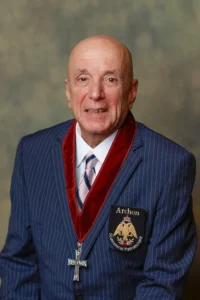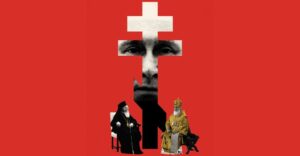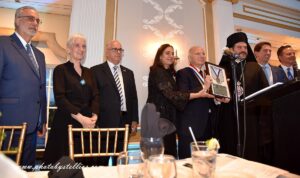Briefing: The Greek Orthodox Church in Turkey: A Victim of Systematic Expropriation
Commission on Security and Cooperation in Europe
March 16, 2005
Dr. Bob Edgar
General Secretary
National Council of Churches
Thank you to all members of the Helsinki Commission for this opportunity to speak to you today.
I am the General Secretary of the National Council of the Churches of Christ in the USA, which is composed of 36 national churches that collectively represent some 45 million Christians in approximately 100,000 congregations across the country. These churches come from the Anglican, Eastern Orthodox, Oriental Orthodox, and Protestant traditions, the latter of which includes the mainline, peace, and historic black churches.
I am also a former Member of the House of Representatives, having served the 7th District of Pennsylvania for six terms, from 1975 to 1987. In between Congress and the National Council of Churches USA, I worked on national security issues here in Washington and was also President of the Claremont School of Theology in California. I am an ordained elder in the United Methodist Church.
I speak to you today in defense of the rights of the Ecumenical Patriarchate of the Orthodox Church, which is situated in modern-day Istanbul, Turkey. I do so on behalf of my Greek Orthodox brothers and sisters who look to the Ecumenical Patriarchate as the cradle of their Christian faith, and who look to the Ecumenical Patriarch as their spiritual leader.
The official title of the Ecumenical Patriarch says a lot about why we are here today. His title is: Archbishop of Constantinople, New Rome, and Ecumenical Patriarch. History teaches us that, when the center of the “civilized” world moved from Rome to Constantinople in the 4th century, the center of the worldwide Christian Church moved with it to what was then known as the New Rome. From this new setting, Christianity flourished and moved across what was then the known world. While the subsequent centuries saw the unfortunate division of Christianity into Roman Catholic, Protestant and Orthodox communities, each to experience the good and the bad of history, it nevertheless remains a fact that the ancient See of Constantinople retains its place of ecclesiastical prominence among the Orthodox Churches and its place of honor throughout the entire Christian world, not incidentally something that goes unrecognized by Turkey today.
In reality, the Ecumenical Patriarch is the symbolic leader of the world’s 250 million Orthodox Christians. And he has direct ecclesiastical jurisdiction over millions of Greek Orthodox Christians throughout the world, including here in the United States, where the Greek Orthodox Archdiocese of America is a member of the National Council of Churches USA.
The Greek Orthodox Church in Turkey, centered in the Ecumenical Patriarchate, has suffered many indignities by virtue of its existence as the heart of the Greek Orthodox minority in that country. Yet there are mechanisms in place that dictate that this must not be so.
According to the 1923 Treaty of Lausanne, which ended World War I, the Greek Orthodox, Armenian Orthodox, and Jewish communities are recognized minorities in Turkey, with their rights guaranteed by the Turkish Government. So central is the Treaty of Lausanne to modern Turkey that this treaty takes precedence over the Turkish constitution. While the Turkish constitution itself makes no reference to the recognition of these three specific minorities, it does state that religious freedom is a right to be enjoyed by all Turkish citizens. Significantly, as recently as 1999, Turkish Government officials recognized the minorities mentioned in the Lausanne Treaty.
Given this legal framework, one would think that the Greek Orthodox community (as well as the Armenian Orthodox and Jewish communities) has enjoyed a harmonious existence within Turkish society. As we all know, the converse is true.
The issue before us today is the systematic expropriation of property owned by individuals and institutions, including the Ecumenical Patriarchate, in the Greek Orthodox community in Turkey. An arbitrary and capricious property rights regime has allowed the confiscation of private properties, schools and churches; currently there are attempts to confiscate an orphanage and an old age home. One result of these actions is the disenfranchisement of the Greek Orthodox minority. Another result is the diminishment of their presence due to emigration. If these violations are allowed to continue, it will not be long before the Greek Orthodox faithful in Istanbul, which numbered 110,000 in 1923 and numbers only 2,000 today, will disappear.
This issue should be seen in the context of the violence also visited upon the Greek Orthodox minority over the years. Quite memorably, in 1955, pogroms were carried out in Smyrna and Istanbul, riots that were subsequently determined to be provoked by the Turkish Government at the time. Fast forward to the 1990s, when the Ecumenical Patriarchate was the victim of numerous physical attacks, culminating perhaps most egregiously in a bombing in 2004, the perpetrators of which were never brought to justice by the current Turkish Government.
And finally, what of policy? In the oft-repeated issue of the Halki Theological School, the Turkish Government has refused to allow it to reopen as a school purportedly under a policy seeking to maintain civil order. I, for one, find the application of such a policy in this case to be dubious at best.
The Greek Orthodox Church in Turkey is a minority community whose history is rich, whose ecclesiastical tradition is vibrant, and whose people are faithful. Sadly, it is also a Church whose future is threatened. The one question we must ask ourselves is this: At a time when Turkey seems to be staking its future on its membership in the European Union, can we stand idly by when the future of a religious minority in Turkey — and one with a 2,000-year presence in that country! — is threatened through systematic expropriation, violence, and government policy?
On behalf of the Christian Churches in the National Council of Churches USA, whose quest for theological unity is manifested in the common search for justice and peace, I urge the US Commission on Security and Cooperation in Europe to insist on, and work toward, the fair and just treatment of the Greek Orthodox and other religious minorities in Turkey, and for the protection of their legal and human rights, as mandated by Turkish and international law.
Thank you for taking up this important matter.







